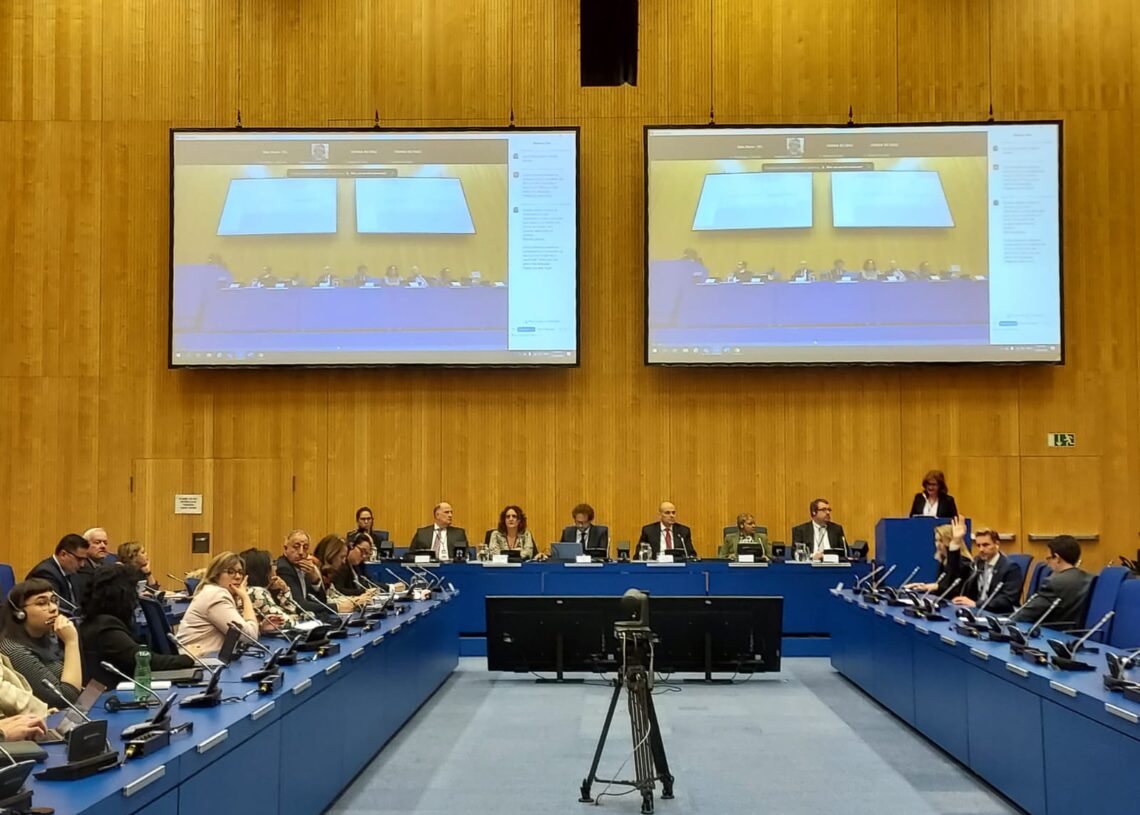The 66th United Nations Commission on Narcotic Drugs, an annual meeting organized by the United Nations Office on Drugs and Crime (UNODC) where Spain participates with the presence of the Government Delegation for the National Plan on Drugs, the Anti-Drug Prosecutor or representatives of the fight against organized crime, as well as representatives of the European programs led by FIIAPP, began last Monday, March 13, in Vienna.
Spain managed to bring together relevant high-level political and technical actors to reflect on EU-CELAC cooperation on drugs and at the same time to present some of the pillars of the COPOLAD III program.
The Spanish Ambassador to the UN in Vienna recalled and reiterated the commitment that Spain has had with the region for several decades and highlighted the importance of the EU-CELAC Cooperation and Coordination Mechanism on Drugs as a fundamental platform for dialogue and exchange between the two regions. Both the Deputy Director for Institutional Relations of the Spanish for the DGPNSD and the Ambassador of Bolivia – the two future EU-CELAC co-chairs of this Mechanism – expressed their commitment to strengthening the Mechanism. The EMCDDA also intervened as a key actor. Finally, the experiences presented by COPOLAD III consolidate and position this program, led by Spain, as a vehicle for action that reflects the exchange and cooperation between the two regions.
“The recovery cycles of people with consumption problems should include social insertion and decent work to combat marginalization and stigma,” said Francisca Oblitas of SENDA, on behalf of the Government of Chile, with extensive experience in vulnerability approaches and challenges in the delocalization of policies.
“The assets confiscated from drug traffickers can be a source of employment for many people and finance prevention programs,” said Prefetto Bruno Corda of Italy.
The debate on the regulatory changes of some substances and uses has also been an open debate for years within the Commission on Narcotic Drugs, with countries such as Jamaica explained.
“It is urgent the revision of international treaties so that farmers who are dedicated to medical cannabis can access credits from this legal business” commented Collette Kirlew of the National Council on Drug Abuse of #Jamaica at the COPOLAD side event at CND66th.
COPOLAD booth
In addition, within the framework of the Commission, the Spanish Cooperation through FIIAPP organizes an information stand on the cooperation programs on drugs both in Latin America and the Caribbean (COPOLAD) and Central Asia (CADAP 7) that it leads together with the PNSD Government delegation. Information on the program is provided and the latest publications produced by the program on specific topics related to drug supply and demand, good practices or working guides are exhibited.






